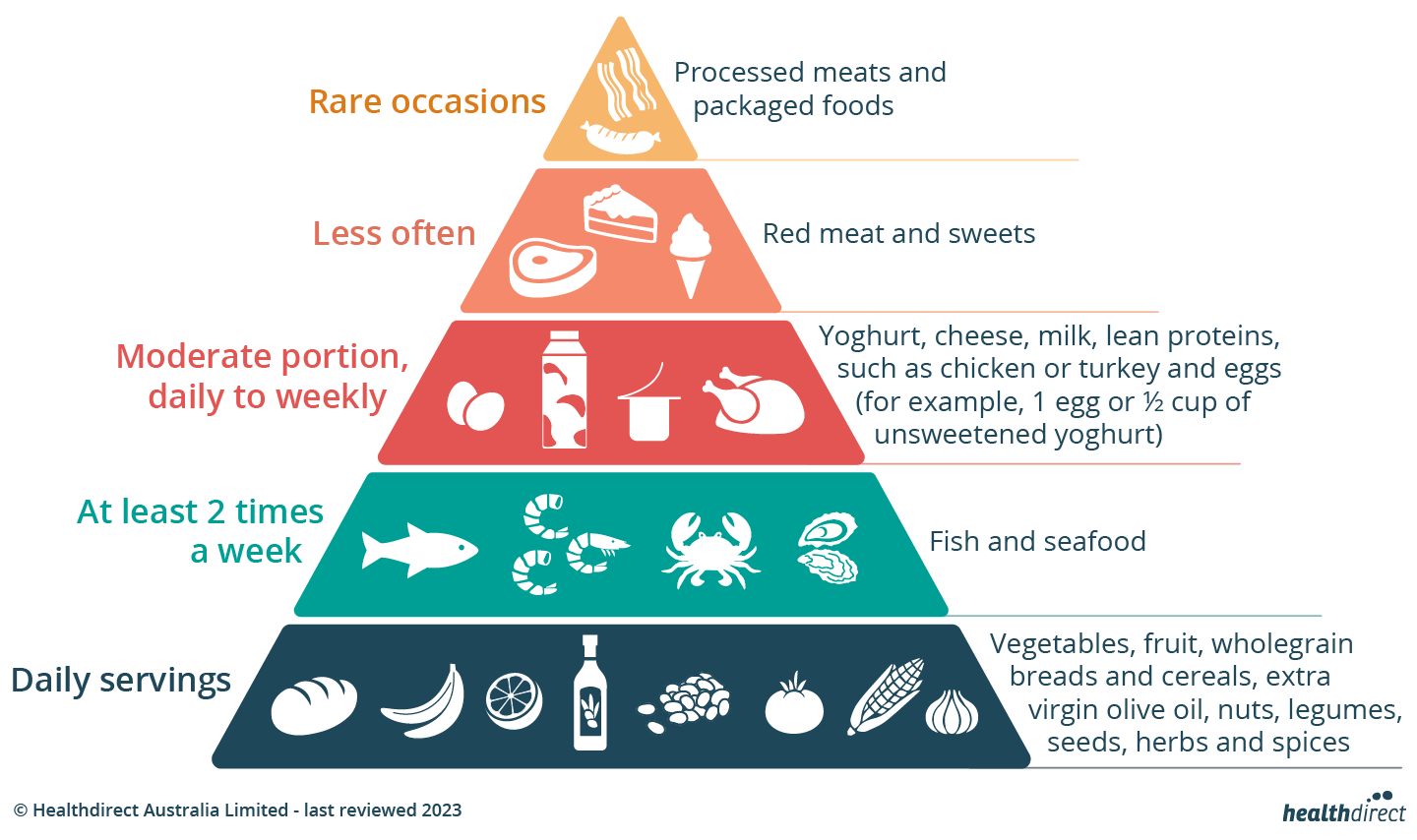introduction of Mediterranean Diet
Have you ever wondered why Mediterranean cuisine is often praised as Mediterranean Diet one of the healthiest in the world? What is it about this diet that has captured the attention of nutritionists and food enthusiasts alike? Join us on a flavorful exploration as we delve into the wonders of the Mediterranean diet and uncover its many benefits.
The Essence of the Mediterranean Diet: A Culinary Adventure
Imagine yourself strolling through picturesque streets lined with olive trees, savoring the aroma of freshly baked bread and ripe tomatoes. This is the essence of the Mediterranean diet – a celebration of fresh, wholesome ingredients that come together to create delicious and nutritious meals. At its core, the Mediterranean diet is not just about what you eat, but also how you eat. It emphasizes the importance of enjoying meals with family and friends, savoring each bite, and finding pleasure in the simple pleasures of food.
The Foundation: Plant-Based Foods
At the heart of the Mediterranean diet are plant-based foods such as fruits, vegetables, whole grains, nuts, and legumes. These foods are rich in vitamins, minerals, fiber, and antioxidants, which are essential for maintaining good health and preventing chronic diseases. By making fruits and vegetables the star of your plate, you not only boost your nutrient intake but also add vibrant colors and flavors to your meals.
The Star Players: Olive Oil and Fish
One of the key components of the Mediterranean diet is the liberal use of olive oil, which is a staple in Mediterranean cooking. Olive oil is rich in monounsaturated fats, which are known for their heart-healthy benefits. It is also packed with antioxidants that help reduce inflammation and protect against various diseases. In addition to olive oil, fish is another star player in the Mediterranean diet. Fish, especially fatty fish like salmon, mackerel, and sardines, are rich in omega-3 fatty acids, which are essential for brain health and reducing the risk of heart disease.
A Pinch of Spice: Herbs and Spices
No Mediterranean meal is complete without a sprinkle of herbs and spices. From basil and oregano to garlic and cinnamon, these flavorful additions not only enhance the taste of your dishes but also provide a myriad of health benefits. Many herbs and spices are packed with antioxidants and anti-inflammatory compounds that help boost your immune system and protect against chronic diseases. So go ahead, get creative in the kitchen and experiment with different herbs and spices to add depth and complexity to your meals.
Moderation is Key: Red Wine and Sweets
In moderation, red wine and sweets can also be enjoyed as part of the Mediterranean diet. Red wine, in particular, is rich in antioxidants called polyphenols, which have been linked to heart health and longevity. However, it’s important to remember that moderation is key – excessive consumption of alcohol or sweets can negate the health benefits of the Mediterranean diet. So indulge occasionally, but always in moderation.
The Benefits: A Recipe for Health and Longevity
The Mediterranean diet has been linked to numerous health benefits, including reduced risk of heart disease, stroke, diabetes, and certain cancers. Its emphasis on whole, nutrient-rich foods and healthy fats promotes overall well-being and longevity. In addition to its physical benefits, the Mediterranean diet is also associated with improved mental health and cognitive function. Its emphasis on social eating and enjoyment of food fosters a positive relationship with eating and promotes a sense of community and connection.
Bringing It All Together: Practical Tips for Embracing the Mediterranean Diet
Ready to embark on your Mediterranean culinary adventure? Here are some practical tips to help you get started:
- Load up on fruits and vegetables: Aim to fill half your plate with fruits and vegetables at every meal.
- Choose whole grains: Opt for whole grains such as brown rice, quinoa, and whole wheat bread instead of refined grains.
- Incorporate healthy fats: Use olive oil as your primary cooking oil and incorporate nuts, seeds, and avocados into your meals.
- Eat fish twice a week: Include fatty fish like salmon, tuna, and sardines in your diet at least twice a week to reap the benefits of omega-3 fatty acids.
- Flavor with herbs and spices: Experiment with different herbs and spices to add flavor to your dishes without relying on salt or unhealthy condiments.
- Enjoy red wine in moderation: If you choose to drink alcohol, opt for red wine and limit yourself to one glass per day for women and two glasses per day for men.
- Stay active: In addition to eating well, make sure to stay physically active by incorporating regular exercise into your daily routine.
In Conclusion: A Delicious Path to Health and Happiness
The Mediterranean diet offers a delicious and sustainable approach to eating that promotes health, happiness, and longevity. By embracing the principles of the Mediterranean diet and savoring the flavors of fresh, wholesome ingredients, you can nourish your body and soul while enjoying the pleasures of food. So why not embark on your own Mediterranean culinary adventure today? Your taste buds – and your health – will thank you for it!










